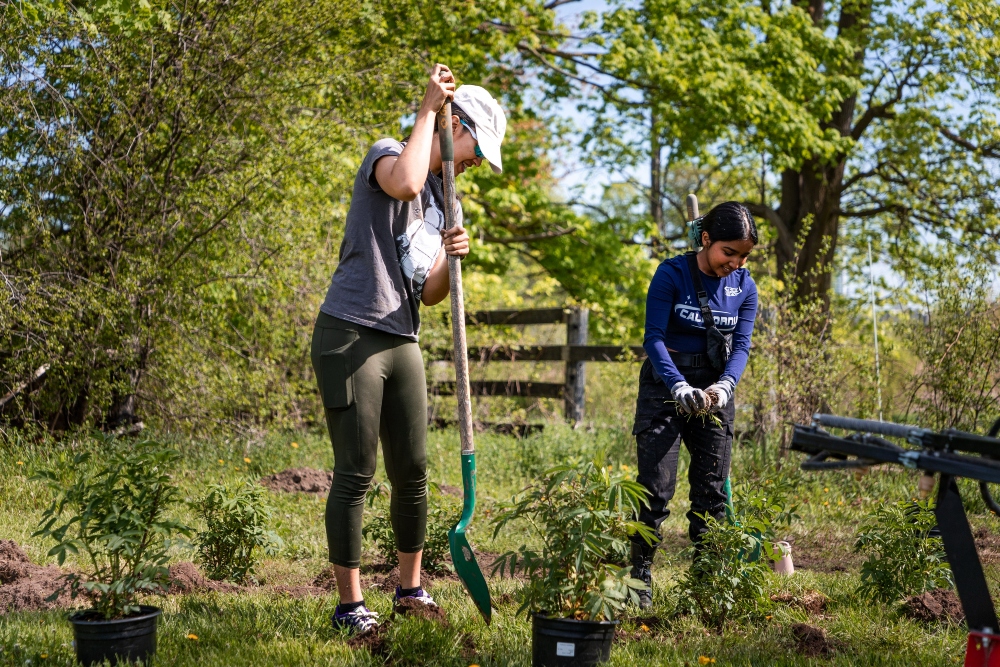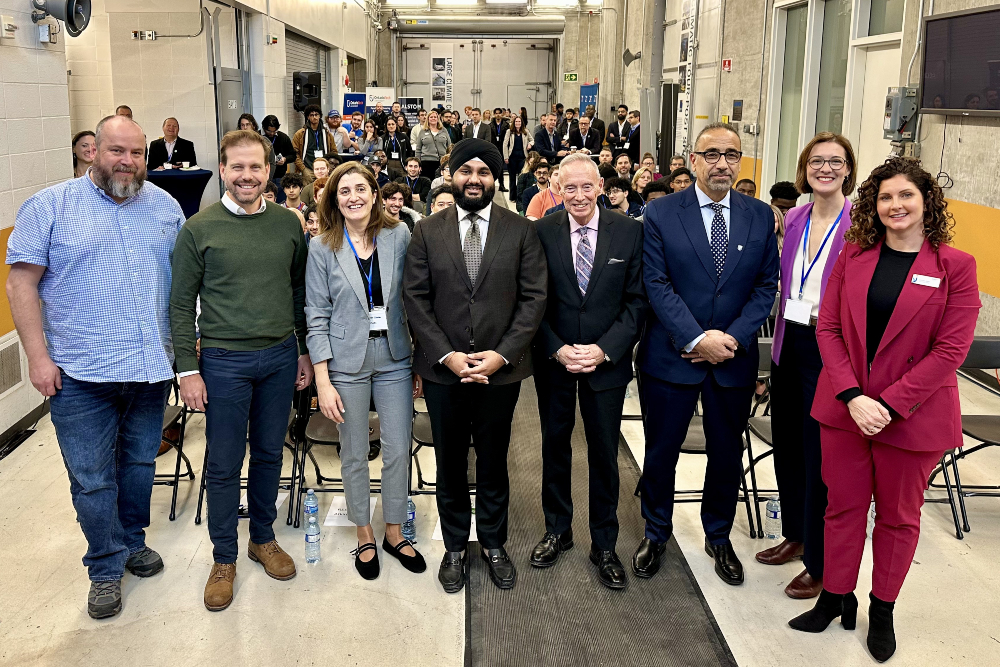Sustainability
We promote environmental, social and economic sustainability. Collaborating with faculty, staff and students, we implement best practices and create a culture of sustainability while encouraging community engagement. Explore our initiatives, events and opportunities to get involved.
Latest news
All news
Ontario Tech earns recognition for sustainability leadership as global rankings spotlight environmental progress


Ontario Tech earns recognition for sustainability leadership as global rankings spotlight environmental progress
December 19, 2025
Ontario Tech named one of the world’s fastest-rising young universities in new global rankings


Ontario Tech named one of the world’s fastest-rising young universities in new global rankings
December 12, 2025
Railway leaders meet aspiring Ontario Tech engineers


Railway leaders meet aspiring Ontario Tech engineers
December 5, 2025
Ontario Tech’s research strategy delivers No. 1 national ranking for the third year in a row


Ontario Tech’s research strategy delivers No. 1 national ranking for the third year in a row
December 4, 2025